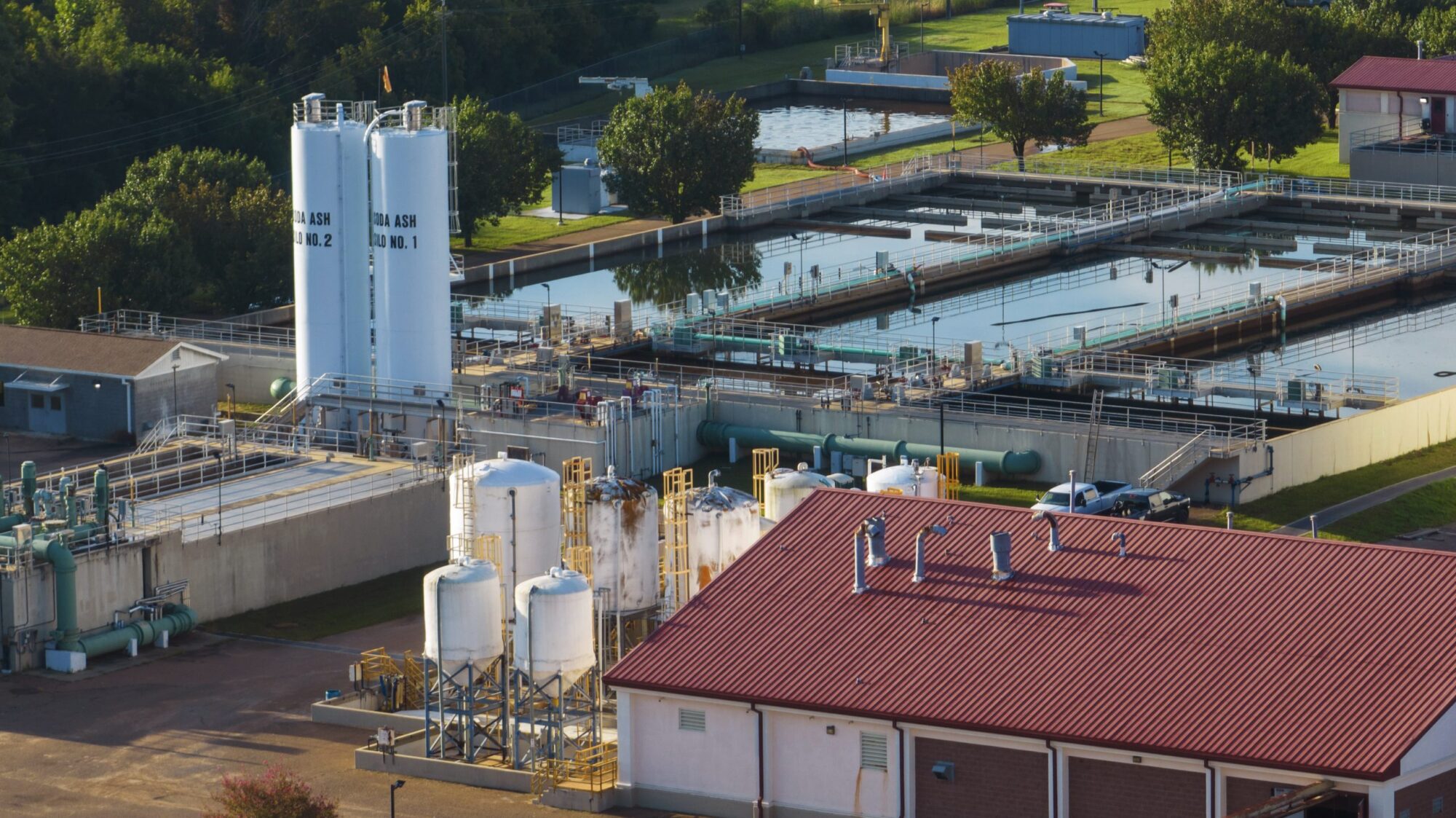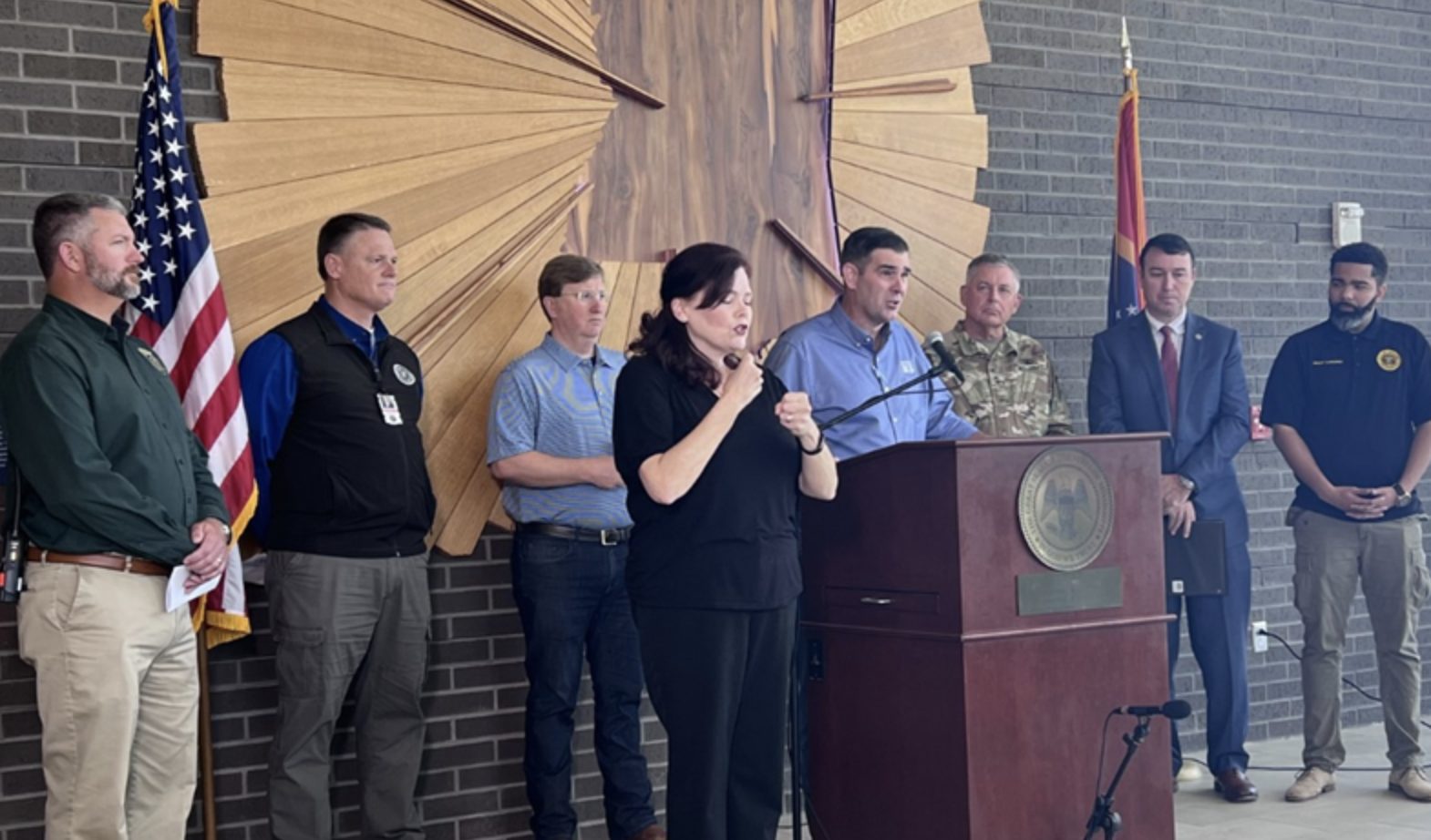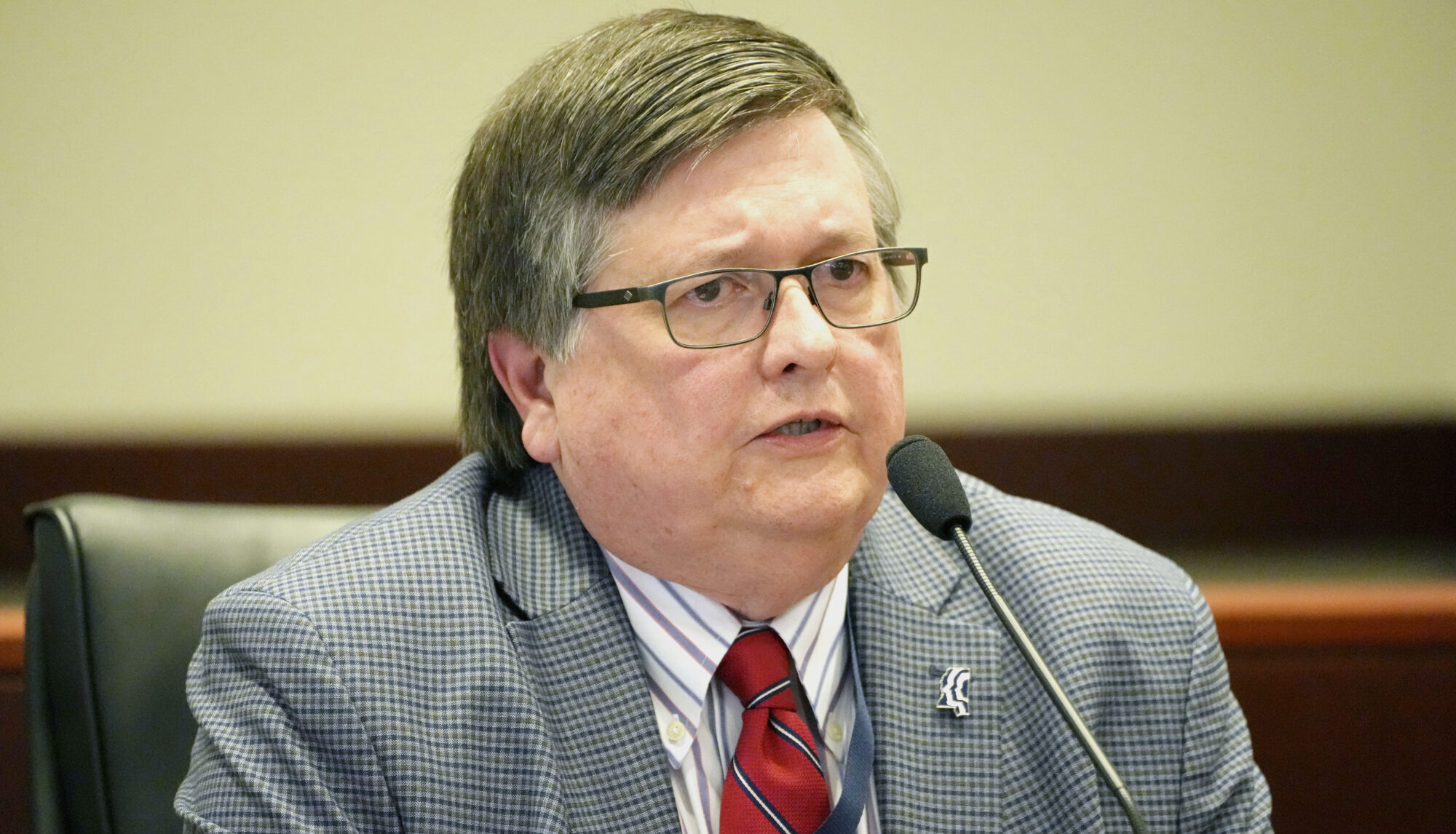
This is an aerial view of of the City of Jackson's O.B. Curtis Water Plant, Thursday, Sept. 1, 2022. (AP Photo/Steve Helber)
“Grateful faces” and “fundamentally unsafe conditions.”
According to multiple sources on-site and close to the State of Mississippi’s intervention in Jackson’s O. B. Curtis Water Treatment Plant that were not authorized to speak publicly, state Health and Emergency Management officials were met with a mix of “grateful faces” from a severely overworked and critically understaffed facility workforce operating in “fundamentally unsafe conditions” that needed to be immediately addressed.
Critically unsafe municipal staffing levels were discovered when state officials arrived on-site. Particularly in the overnight hours, staff had dwindled to one operator on-site tasked with handling both the membrane and conventional filtering systems leaving a single point of failure from a staffing perspective. They also discovered that there were not qualified electricians on-site, leaving unqualified staff to handle these critical tasks.
The facility had all but ceased standard preventative maintenance required for compliant water treatment facilities as the limited number of employees were essentially moving from “crisis to crisis” hourly. This led to basic safety protocols and precautions being ignored due to lack of staffing.
Intake water sensors to monitor pH levels were not functioning and had not been functioning for an unknown period of time. Those pH sensors are critical to operators understanding the composition of water intake and how to plan to treat water chemically for safe output.
Additionally, sources on the ground reported that the pH levels were so high in the water that the sensor failures required the improvised lowering of pressure on Monday in order to attempt to balance treated water output. The water output was substantially out of balance leading to the water leaving the facility being deeply unsafe.
The low water pressure output from the plant over the last month, when pumps were severely damaged and taken offline, led to a diminution of water pressure from above ground tanks further exasperating the crisis.
In the days since state intervention, a new emergency rental pump has been installed and conditions have started to improve.
We are installing our emergency rental pump at Jackson’s water plant. Thank you to the operators, delivery teams, and experts on the ground who are making these repairs to restore water for the people of Jackson. More to be done, but the work is happening at an incredible pace! pic.twitter.com/nuv3o8wmXl
— Governor Tate Reeves (@tatereeves) August 31, 2022
The lead up to a near system collapse
Last Thursday, as unseasonal rains poured across central Mississippi and the Pearl River continued to rise, Mississippi Governor Tate Reeves convened officials from the Department of Health (MSDH) and the Mississippi Emergency Management Agency (MEMA) to assess the water situation in the City of Jackson. The Governor, Health Department and Emergency Management Officials knew full well that if the municipality’s water treatment facility was failing to pump water, residents could be facing an imminent full blown health crisis.
Upon discussion, state officials, concerned with both output and chemical composition at the water treatment facility, decided to begin drafting emergency orders on Friday while also reaching out to area contractors familiar with such facilities in an effort to have workers on standby should it be needed.
MSDH had the option of using their authority from MS Code Section 41-26-11 as their justification to ensure proper life, health and safety of Jackson citizens. The law states, “The director shall develop an adequate plan for the provision of safe drinking water under emergency circumstances. If, in the judgment of the director, emergency circumstances exist in the state for safe drinking water, the director may take any actions deemed necessary to provide safe drinking water where it otherwise would not be available.”
As state health officials began the process of reaching out to contractors that might provide assistance, there were substantial concerns from a lack of payment from the City of Jackson, further complicating efforts.
By the weekend, after preparing the necessary resources to take control over many operations at O.B. Curtis, Health and MEMA officials reached out to Jackson Mayor Chokwe Lumumba at the Governor’s direction to inform the city that the State was in a position to declare a state of emergency because the situation at the water treatment facility was untenable. The state would pay half of the cost and the city would pay the other half, presumably through previously allocated American Rescue Plan Act (ARPA) funds.
However, when state officials and workers arrived, what they found was even more concerning than they had initially imagined.
This could have been easily prevented
Sources close to the situation that were on-site said staffing levels at the O.B. Curtis Water Treatment Facility operated by the City of Jackson have long been an issue and were the primary issue in the diminished operation of the facility.
A WLBT report documented this in mid-August with emails from one employee stating, “I worked 24 to 36 hours at OBC every Saturday and Sunday 7a-7p and Wednesday or Thursday night 7p-7a over six (6) months last year because of the Class A operator shortage.”
On Thursday, Jackson City Council President Ashby Foote and Councilmen Aaron Banks and Vernon Hartley toured the O.B. Curtis facility along with Jordan Hillman, Deputy Public Works Administrator, and Les Herrington, Environmental Health Officer with the Mississippi Department of Health, to get a firsthand tour of the response. The tour was led by Jim Craig with the Mississippi Department of Health, who has since been named Incident Commander of the state response.
According to City Councilman Foote, “Redundancy in the facility had been allowed to atrophy to the point where the operations of the plant simply were not sustainable.”
There are no definitive timetables on the return to normal operations for the plant, but “substantial progress” has been made, according to officials following the installation of a new supplementary pump.
Immediate staffing of resources to try to get the plant on a stable footing to provide serviceable water to the citizens of Jackson has been a priority.









